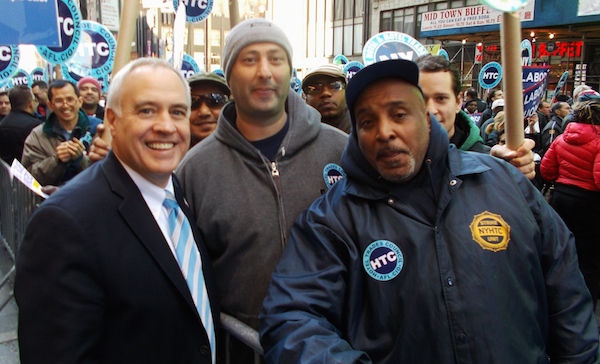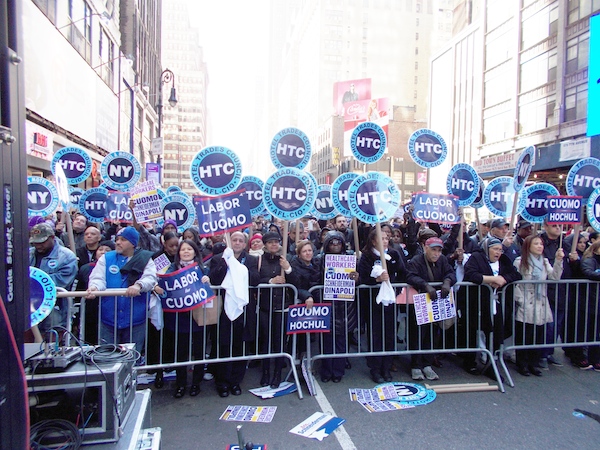The Story of the 2014 Elections: Low Voter Turnout
There were few surprises in this year’s elections, with pollsters saying for weeks that the Republicans would win control of the U.S. Senate and increase their majority in the House of Representatives. That’s exactly what happened this week, and it happened because too many Democrats stayed home.
Low voter turnout and anti-White House sentiment are the usual factors in midterm elections. It happened in the middle of Bill Clinton’s first term and, to a lesser extent, in the middle of his second term. It happened in the middle of both of George W. Bush’s terms and it happened in 2010, in the middle of Barack Obama’s first term.
Now it has happened again. And it is almost comical to find that many of the Republicans now calling for bipartisanship and for the parties to work together are the same ones who have spent the last six years keeping Congress in gridlock and blocking every initiative of the Obama administration. It’s the height of hypocrisy and it’s a sad commentary on the state of affairs in Washington.
Democrat Losses Widespread
How bad was the carnage for Democrats? Very bad. A number of incumbent Senate Democrats lost their seats. In the state of Montana, for example, the Republicans took a Senate seat that had been held by Democrats for more than 100 years.
The same kind of results were true in state governor races, with Republican victories in a majority of the contests, including some where the GOP had not won in generations.
Even Scott Walker won. The incumbent Wisconsin governor, whose anti-worker policies have resulted in his state suffering the absolute worst job growth in the Midwest, won a comfortable victory over his Democratic challenger, Mary Burke.
The Federal Reserve Bank of Philadelphia ranked Wisconsin 49th out of the 50 states in economic outlook, and Walker won. Walker cut more than $1 billion in education funding and drove the state into a record $2 billion budget deficit, and he still won. He blocked the effort to raise the minimum wage in Wisconsin and he enacted legislation to prohibit municipalities from legislating paid sick days for workers, and he still won. So how did Scott Walker win? He won by receiving more than 80 percent of his campaign funding from sources outside of Wisconsin. He won by having one of his lackeys falsely smear Ms. Burke just a few days before the election. But most of all he won because too many Democrats and too many working families stayed home on Election Day.
Many Republicans Voted, Many Democrats Did Not
“Election results depend on who comes out and votes,” Hotel Trades Council President Peter Ward reminded the Union’s Executive Board this week. “On a national scale a higher percentage of Republicans came out and voted in a year where overall turnout was low. Do the math and it’s obvious that this was the recipe that allowed the Republicans to seize control of the U.S. Senate and increase their majority in the House of Representatives.”
How bad were this year’s national election results? Well, consider this irony from the 2014 vote. Because Congressional Republicans have steadily blocked every effort the last few years to raise the federal minimum wage from its current pitiful level of $7.25 an hour, five different states—Illinois, Arkansas, Nebraska, South Dakota and Alaska—were forced to have ballot initiatives for an increase in the minimum wage. Voters in all five of these states approved the minimum wage hike—while electing Republicans to the U.S. Senate and/or their state’s governor’s office!
There were other ironies. With Congressional Republicans strongly opposed to any and all gun safety measures, several states took matters into their own hands and put items like mandatory background checks and assault weapon bans onto their ballots. Voters in these states passed these gun safety measures by a wide margin, but still voted Republican!
Poor Campaigning by Democrats
Results like this show that Republicans won so thoroughly because Democrats campaigned so badly. Democrats were running away from issues like gun safety, immigration reform and a minimum wage increase because President Obama has voiced his support for them. In fact, too many Democrats foolishly ran away from President Obama himself during the campaign, and voters penalized them for this disloyalty by either voting Republican or staying home from the polls in disgust.
A prime example of this misguided behavior by Democrats is what happened in Kentucky. There, Alison Lundergan Grimes was the Democratic nominee vying to be the first woman Senator from the Bluegrass State. She was pitted against Mitch McConnell, the Senate Minority Leader, who had extremely high unfavorable ratings in his own state, forcing him to rely on campaign funding that had more than 80 percent of its source from outside Kentucky. A short time before Election Day, polls showed Grimes and McConnell running neck and neck. Then, during a televised debate, Ms. Grimes was asked if she had voted for President Obama. Instead of answering the question, she started spouting some nonsense about the Constitution giving everyone the right of privacy and the use of a secret ballot. She refused repeatedly to directly answer the question, even though everyone knew she was an Obama delegate to the 2012 Democratic Convention! Her poll numbers sank suddenly and sharply. She lost by 16 points, due mostly to her effort to run away from President Obama. And she was far from the only candidate to make this mistake. In fact, President Obama was only invited to campaign for nine of the 36 Democrats across the country running for the U.S. Senate!
Unnecessary Defensive Posture
“There were plenty of Democratic candidates who lost because they wouldn’t stand with President Obama or voice their support for progressive measures like an increase in the minimum wage, healthcare reform, gun safety laws, consumer protection and immigration reform,” Peter Ward said. “The defensive posture of Democrats was unnecessary. It played right into the hands of the Republicans, and the results show.”
Indeed, things will be interesting the next two years with a Republican majority in both houses of Congress. Fortunately, neither of these majorities is close to the 67 percent that would be needed to stop a veto by President Obama, which is now the only thing that would be standing in the way of the Republicans enacting any legislation they want.
Cuomo, DiNapoli, Schneiderman Win
Things were somewhat different in New York on Election Day. Governor Andrew Cuomo, Attorney General Eric Schneiderman and Comptroller Thomas DiNapoli, all of whom were endorsed by our Union, all won by comfortable margins. The New York State Senate ended up with a one-seat Republican majority, but it is doubtful this will produce gridlock in Albany, where Cuomo has displayed an ability to get the two sides to compromise on issues.
The Union had plenty of member volunteers working for its endorsed candidates leading up to the vote and on Election Day itself. In addition, more than 1,000 members attended a get out the vote rally for Cuomo, DiNapoli and Schneiderman in Times Square the day before Election Day. In his nationally televised victory speech at the Sheraton New York Election Night, Governor Cumo thanked Peter Ward and singled out our Union for its strong support and outstanding political mobilization.
“I join Governor Cuomo in saluting our members’ efforts to get out the vote,” Peter Ward told Hotel Voice. “When members volunteer their time to help candidates that are friendly to working families it helps not only their own families but also families across the state and our Union itself.”
Making a Difference
Efforts by our members provided good results. Voter turnout in New York was only 34 percent, the lowest figure in 44 years. And while this dismal turnout clearly reflected the mood of the rest of the country, there was a significant difference here in New York. That difference, of course, was that enough volunteers in New York turned out enough progressive voters to produce victories for the state’s three top office holders, all of whom are friendly to working families. It shows that canvassing, leafleting and other activities that support candidates friendly to working families can indeed be productive. Here in New York, in a year when such a small percentage of voters went to the polls, volunteers like those from our Union showed that they can make a significant difference.
Peter Ward reinforced this message with one of his own at this week’s HTC Executive Board meeting. “While we certainly can’t be happy with the results of the national election, no vote in recent memory has provided a stronger lesson,” he said. “That lesson is that volunteers can make a genuine difference because elections are decided by who comes out to vote.”

The view of the crowd from the podium is all HTC at the November 3rd Times Square rally for Governor Cuomo, Comptroller Tom DiNapoli and Attorney General Eric Schneiderman.
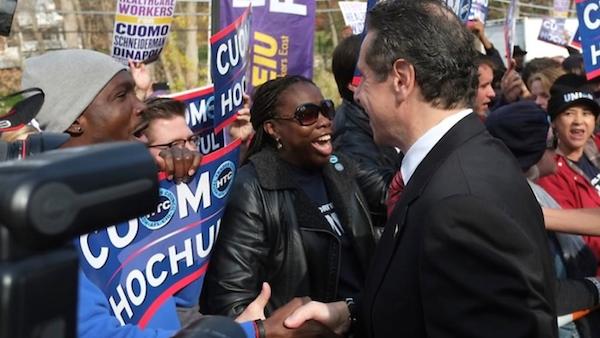
Winston Lorne and Denise Matthew greet Governor Cuomo on Election Day.
New York State Comptroller Thomas DiNapoli visited with members of our Union at the rally. He is seen here with Guy Seth, Waldorf-Astoria, and James Curry, Andaz Fifth Avenue.
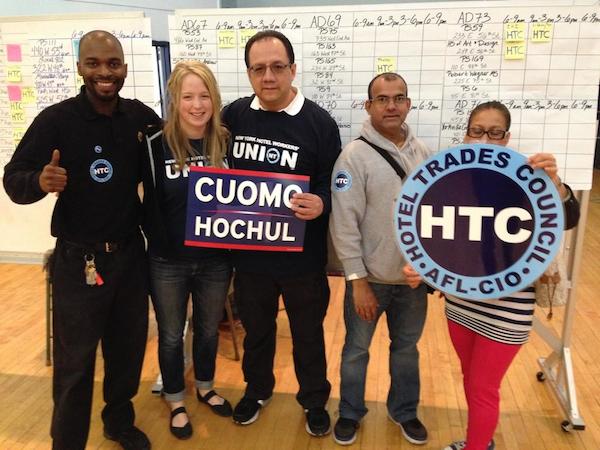
Member volunteers from the Plaza Hotel helping to get out the vote on Election Day.
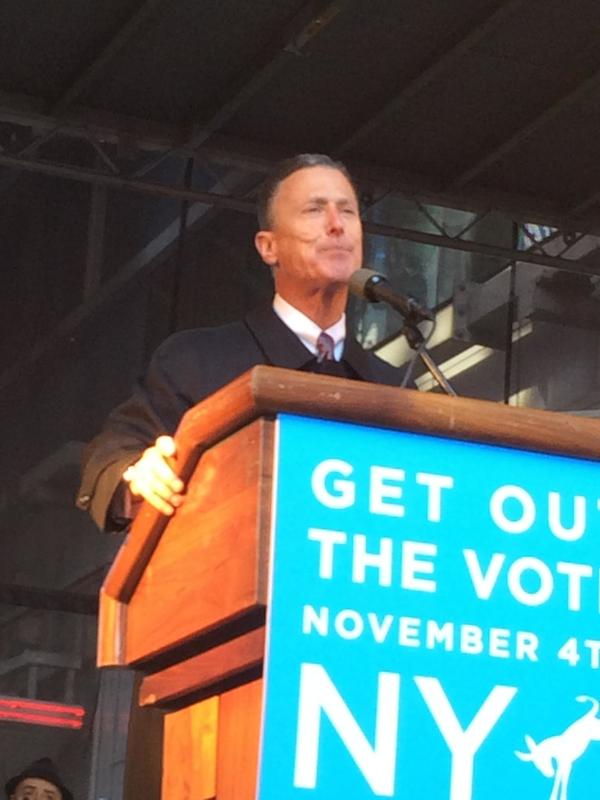
Peter Ward speaking at the November 3rd Get Out The Vote rally.
Here are some of the more than 1,000 members who attended the November 3rd get out the VOTE rally


